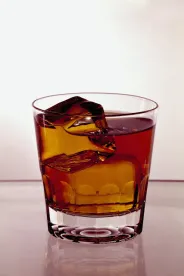The Office of Environmental Health Hazard Assessment (OEHHA), the agency responsible for maintaining the list of chemicals subject to California’s Proposition 65, recently adopted a regulation defining the no significant risk level (NSRL) for 4-Methylimidazole (4-MEI) at 29 micrograms per day. The regulation was approved by the Office of Administrative Law in early January 2012 and has an effective date of February 8, 2012.
Proposition 65, California’s “Safe Drinking Water and Toxic Enforcement Act of 1986,” requires companies to warn consumers prior to exposing them to chemicals on the Proposition 65 list of chemicals known to the State of California to cause cancer, birth defects, and/or other reproductive harm. However, no warning is required if the person responsible for the exposure, “can show that the exposure poses no significant risk assuming lifetime exposure at the level in question for substances known to the state to cause cancer.” While Proposition 65 often places the burden of demonstrating an NSRL on alleged violators, for some chemicals OEHHA has set a regulatory NSRL. Once a chemical appears on the Proposition 65 list, companies have one year to comply with Proposition 65 with respect to that chemical.
4-MEI was first listed as a chemical known to the State of California to cause cancer on January 7, 2011. Because of the significant public interest in 4-MEI, OEHHA issued a notice proposing the adoption of an NSRL the same day the chemical was listed. 4-MEI is found in some foods that have caramel colorant and/or have been heated or browned, including some types of soda, soy sauce, molasses, wine, and beer. It is also used in the manufacture of a variety of products, including some dyes and pigments, agricultural products, and pharmaceuticals.
On January 25, 2012, the Center for Environmental Health issued the first publicly available notice of alleged violation of Proposition 65 due to the alleged presence of prohibited levels of 4-MEI without a Proposition 65 warning. The notice identifies various brands of soda. Future notices will, no doubt, follow as private enforcer plaintiffs look for additional avenues for Proposition 65 litigation.
Companies that produce products that contain 4-MEI should complete a Proposition 65 legal analysis to determine the risks and exposure to such litigation.



 />i
/>i
